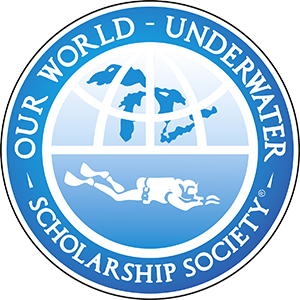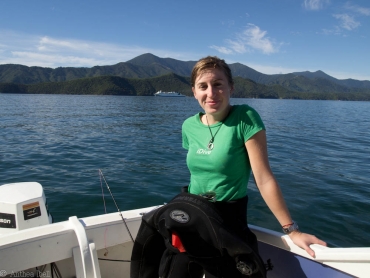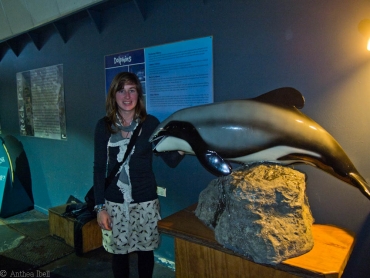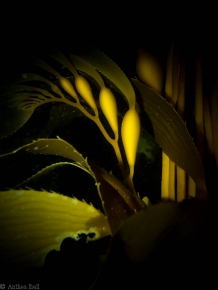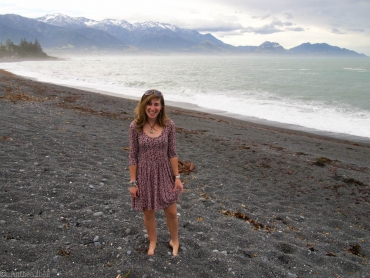Returning home to New Zealand with a couple of months left on the scholarship provided an opportunity to travel around my own country and meet people to learn about current research and our facilities.
In Dunedin I met with people at the University of Otago, where I will be returning to study after the scholarship year is over. Steve Dawson from the marine department was kind enough to meet with me and explain his research with Hector’s Dolphins. Hector’s dolphins are one of the smallest marine mammals and are only found in New Zealand waters. They are considered endangered with only 7000 individuals left. The closely related North Island population of Maui’s dolphin have hit incredibly low numbers with the Department of Conservation recently assessing that there are only 55 adult individuals left. These small animals are particularly vulnerable to gill nets and other fishing techniques.
Steve Dawson and fellow Otago Professor, Elizabeth Slooten has been working on a long term monitoring project of Hector’s dolphins for the past 30years. It has been with their research that management plans have been put into place. These include numerous marine protected areas and gillnetting was effectively banned within 4miles of the coast around a majority of the South Island. Talking to Steve about his work showed the effect that a few…even as little as two individuals can have on the conservation of an important vulnerable species.
While in Dunedin I took the opportunity to visit my old diving haunt. Aramoana Mole was the site where I completed all my dive training through Dive Otago before receiving the scholarship. Returning to the cool waters for a night dive, this time with my Waterproof Drysuit, I reminisced and enjoyed the kelp covered wreck of the Mokoia. A pleasant end to the dive was to surface next to a blue penguin.
In Picton I was able to take part in some of the National ‘Seaweek’ events with a documentary film evening at Ecoworld Aquarium premiering films made by Otago University’s Natural History Filmmaking and Communication post-graduate students. The films were a great way to show New Zealanders some of the conservation efforts currently taking place but that don’t get a lot of news publicity. It was very interesting to learn about the collapse of the Bluff Oyster fishery, the catch and release of Longfin Eels by Merdian Energy Ltd. after interruptions to the life cycle due to dams and the recent removal of the shark nets at Saint Claire beach in Dunedin.
Recent changes to a Blue Cod fishing ban in the Marlborough Sounds has caused a fair amount of controversy. In 2008 a complete ban on Blue Cod was put in place due to concerns that the population was being overfished. The National Institute of Water and Atmospheric Research’s (NIWA) recent change now acts as a ‘slot length’ and so fish between the sizes of 30cm – 35cm are allowed to be taken. I was able to meet with John Leader and his wife Jennifer Bedford who are the scientists aiming to learn more about the ecology and life history of the fish in an effort to put more appropriate management plans in place. They aim to gain a stock assessment through surveys of fish caught as well as look at the mortality rate of released fish. In the long term they aim to investigate whether the Blue Cod recruitment occurs within the sounds or the eggs are fertilized outside the sounds and carried in with currents. This will also in turn affect the management plans for the species. With surprisingly little research being carried out in the area at the moment there is also concerns on the effect of the mussel farms and salmon farms that make up a growing aquaculture industry in New Zealand.
After all my incredible and unforgettable travels it is still a wonderful feeling to be back home in the South Pacific and see the ocean from a familiar perspective. Thank you to Steve Dawson and Sue Heath at Otago University; my dive buddy Lei Quinger and Dave and Mary Watson at Dive Otago; John Leader and Jennifer Bedford, Debbie Eddington and Dan and Phil Madill.
An unfathomably big thank you to my wonderful parents Michael and Jacqui for the unending support.
